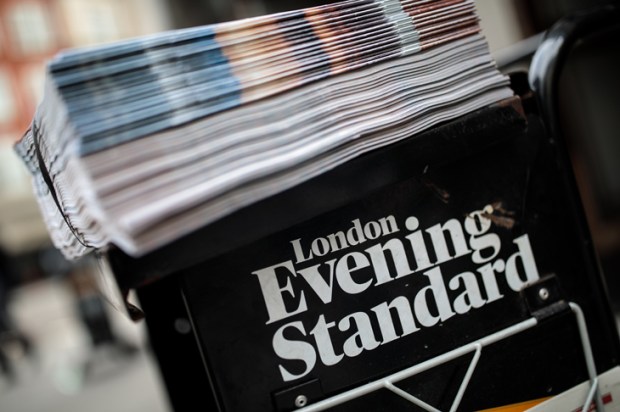‘Clive James Stirs.’ That was the standard subject line for the emails I used to get from the great Australian polymath. I liked it. It cast him, I thought, as a sort of barnacled kraken — still hanging in there, occasionally roused to action. He was usually submitting a new poem. For a while, after he first announced his illness and his poem ‘Japanese Maple’ had gone viral thanks to a tweet from Mia Farrow (Clive found this funny, and was pleased), there was a faintly ghoulish cachet in the thought that we might be the publishers of Clive’s last poem. But of course, he didn’t die — and the poems kept coming. ‘In the meantime I hope to have a couple more poems for you,’ he wrote in spring 2015, ‘if I am granted life. I’ve been granted it so far, and in delightful measure; but there is no knowing for certain. I suppose that’s part of the fun. Not even the Aussie critics can plausibly accuse me of rigging my exit, although some of them try, God bless them.’ He didn’t rig his exit — but he went. I’m sad I’ll never see that subject line pop up again.
In 2017 I went to Cambridge to talk to Clive for The Spectator’s books podcast. After our interview was over, Clive asked me to stay and keep him company. We sat for a couple of hours on a little terrace overlooking his box garden, talking about books and gossiping. He was good at gossip. He knew everyone and managed to be both slighting and affectionate — ‘Germaine? Germaine’s a child!’ — in a single thin breath. At one point my eye lighted on one of the plants in the garden and something occurred to me. ‘Is that a Japanese maple?’ I said. ‘Is that the Japanese maple?’ ‘It was,’ said Clive. ‘The original one died. This is about the third since.’ ‘You outlived it!’ I exclaimed. ‘Keep that to yourself,’ said Clive. ‘I’m saving it for a poem.’
Clive was in my mind over the last several months as I wrote the book I’m just publishing, a month-by-month diary of the year in comic verse called Our Times in Rhymes. As I say in the closing section, I’d like to think Clive — whose Peregrine Prykke’s Pilgrimage was a bravura example of the form — would have liked the idea. As I also say, stating the obvious: he’d have done it better. He died just before I was able to send him a finished copy so he could tell me so too.
Writing anything topical in book form, these days, almost guarantees you’ll be overtaken by events. Kevin O’Rourke’s A Short History of Brexit was published on 31 January, and boy oh boy did that date turn out to be a hostage to fortune. I had to write December and most of November of my own book in advance, so — as well as assuming Clive was still with us — I missed the London Bridge attack, the Chief Rabbi’s op-ed on anti-Semitism, Ken Livingstone getting his foot stuck in a Tube door, and much else besides. But goodness it’s bliss no longer to have to make notes on the daily parade of inanity and mendacity. I’ve watched all three seasons of the crime drama Unforgotten on catch-up, and I’m finding its murderers far more congenial company than most of our public figures.
My colleague James Forsyth has a pet theory that since so much now happens online, in most of the country you’d scarcely know the election was even taking place. Not so in sort-of-marginal Golders Green and Finchley, where I live. Strange rhomboid orange flowers blossom in front gardens, and glossy pamphlets and flyers from all three parties pour daily through the letterbox. We in the metropolitan liberal elite are friendly to refugees, and one such is the admirable Luciana Berger — who has fled political violence in the Labour party and is now standing for the Lib Dems in our constituency. She has quite the ground-game. School WhatsApp groups are buzzing with invitations to ‘Luciana in Your Lounge’ coffee mornings, and on one piece of election literature she even included a mobile phone number. She even took Hugh Grant out canvassing with her. That will probably move the needle — but who can say in which direction?
Looking at current events through the prism of formal verse gives you an odd perspective. Theresa May’s premiership was a mixed blessing for the country, for instance, but a great boon to anyone writing an iambic line. Had I known that trochaic, hard-to-rhyme Boris Johnson would end up in charge, I might have changed tack and gone for Longfellow’s ‘Hiawatha’ form: ‘Mayor of London Boris Johnson/ Much admired the lady’s pole-dance/ Mentored well her start-up business’ and so on. I had a line ending in ‘trousers’ too, but perhaps we’ll leave it there. My colleague Lucy Vickery invites readers to write their own trochaic tetrameters in this week’s competition, so let’s see what you can come up with. Play nice…
Got something to add? Join the discussion and comment below.
Get 10 issues for just $10
Subscribe to The Spectator Australia today for the next 10 magazine issues, plus full online access, for just $10.
You might disagree with half of it, but you’ll enjoy reading all of it. Try your first month for free, then just $2 a week for the remainder of your first year.













Comments
Don't miss out
Join the conversation with other Spectator Australia readers. Subscribe to leave a comment.
SUBSCRIBEAlready a subscriber? Log in